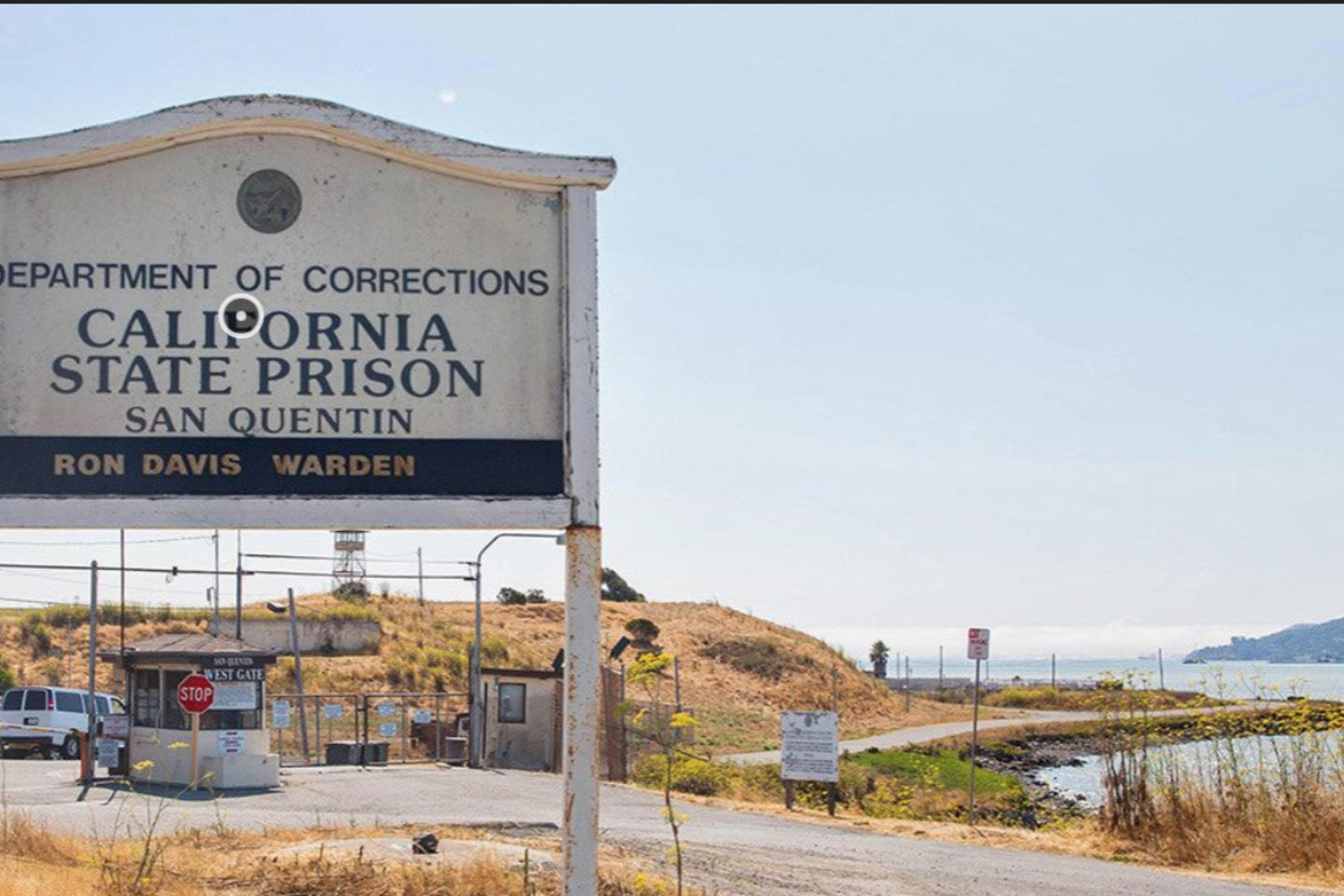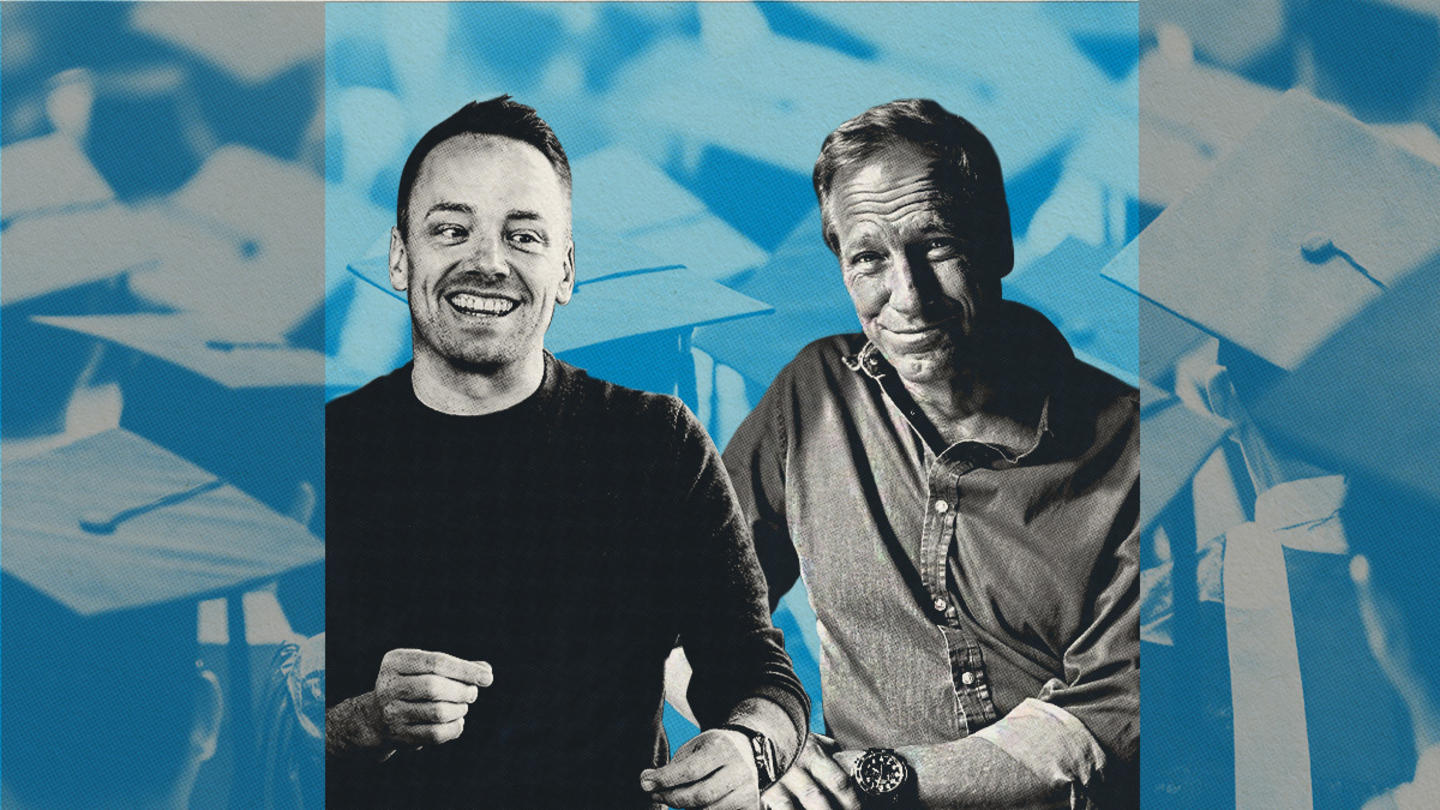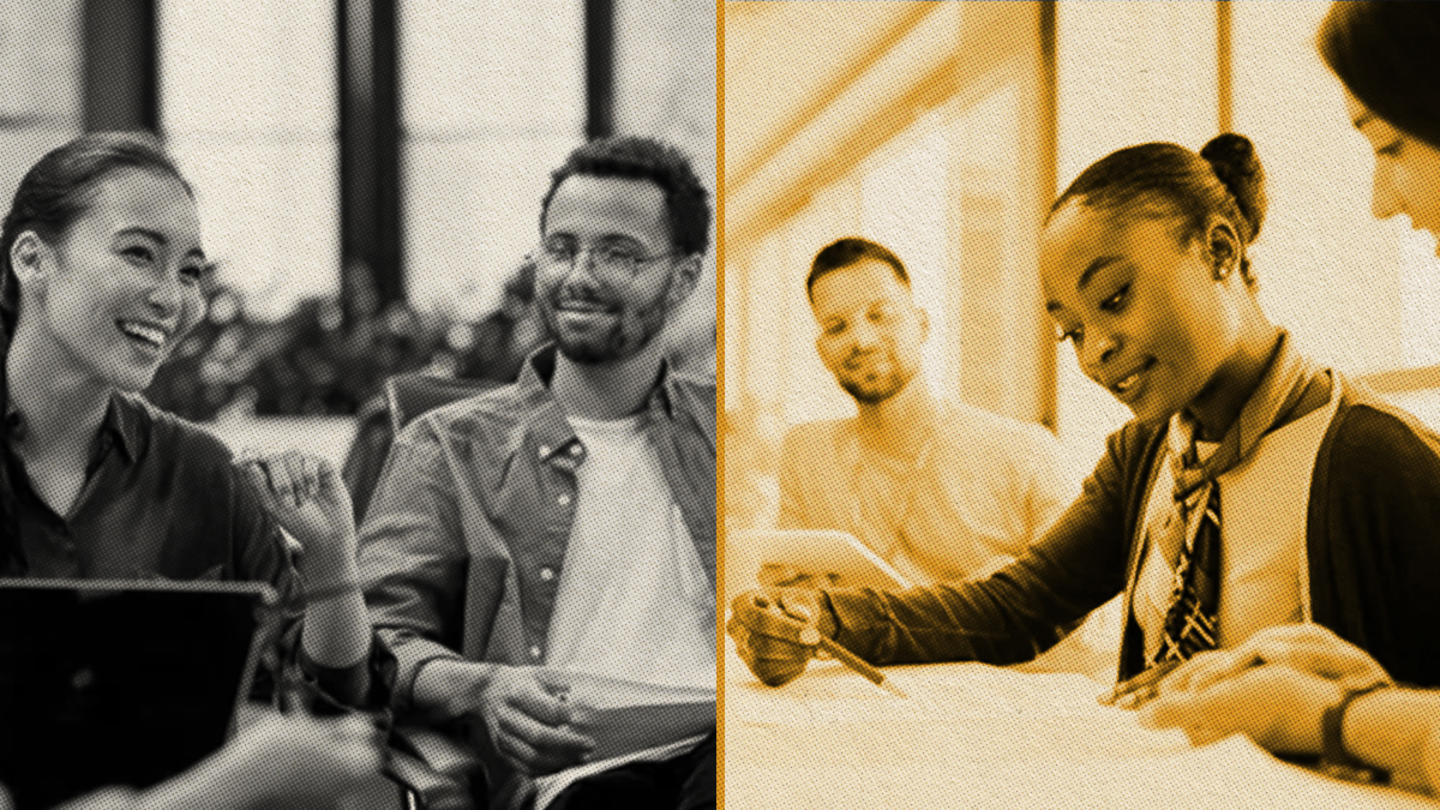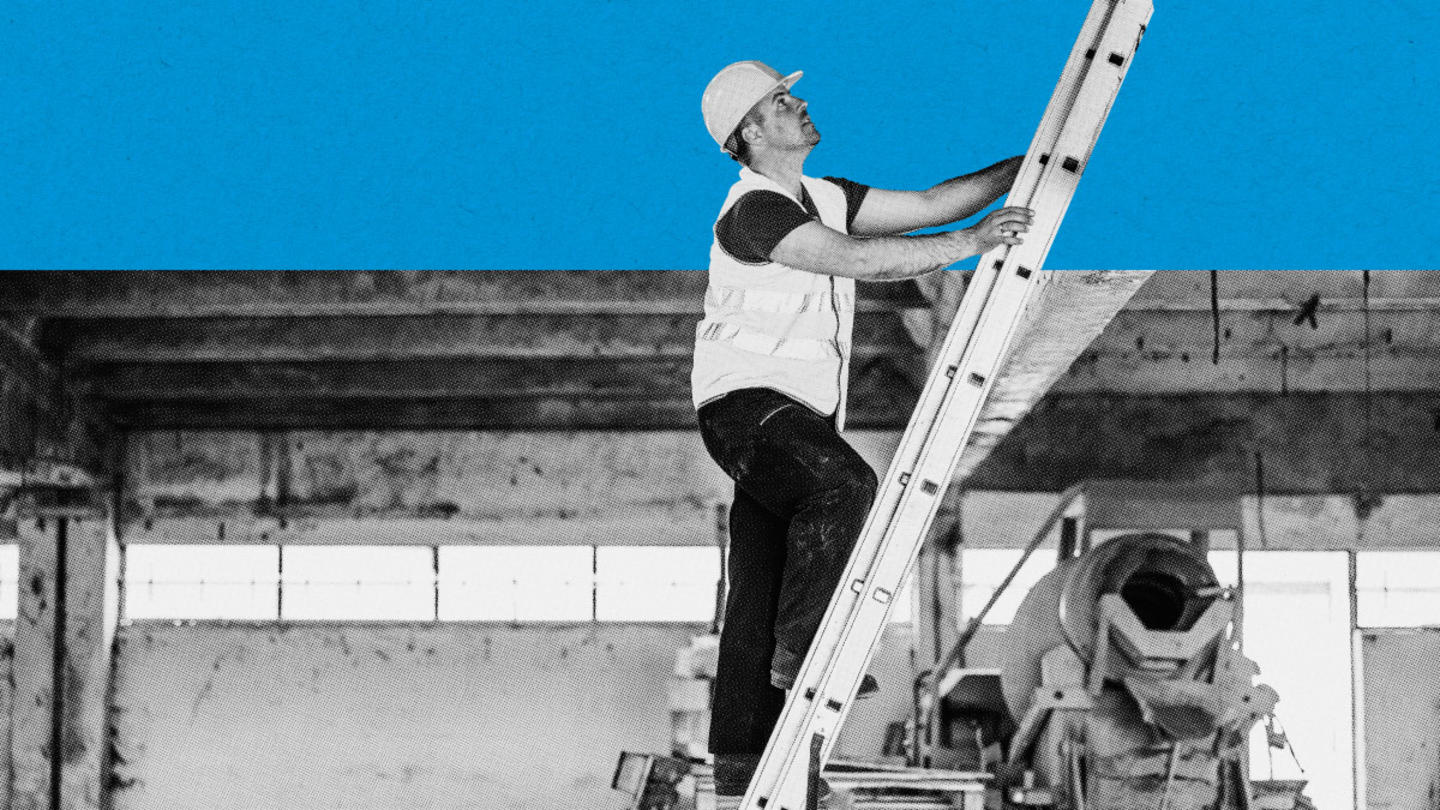At the highest level, The Last Mile (TLM) is a much needed pipeline for high-skilled labor, which saves taxpayers tens of millions of dollars, breaks generational cycles of incarceration, and improves the safety of whole communities by reducing recidivism. Deeper than that, TLM is an effort to breakdown stereotypes and challenge paradigms that keep this country's greatest potential locked up.
"I was ignorant about the justice system in our country before I ever set foot into San Quentin," admits Beverly Parenti, co-founder of TLM.
"I had no idea about the fiscal and societal impact it was having; it costs over $60,000 a year to keep someone incarcerated in California. I also learned that, although we only have 5% of the world's population, 25% of the world's incarcerated population lives behind bars in the U.S. That discovery caused me to take pause and think about, why we are spending so much money keeping people incarcerated, and then sending them home and finding that, at the time in California, over 60% recidivate? It made no sense."
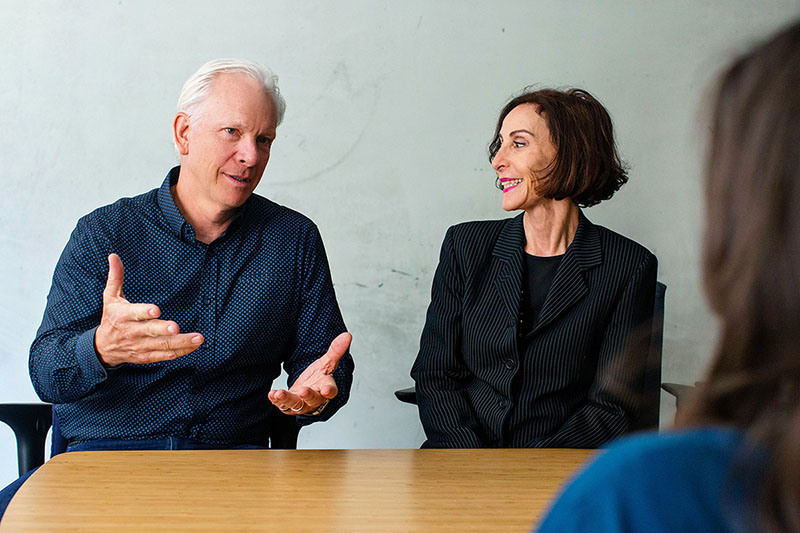
Chris Redlitz and Beverly Parenti, Co-Founders of The Last Mile Photo by Erica Baker
"When I went inside San Quentin with Chris," Beverly remembers, "I saw intelligent, driven, evolved men who have been doing so much work on themselves, and studying and earning degrees, it was the antithesis of what one expected to see inside a correctional facility."
Chris Redlitz, co-founder of TLM (also Beverly's husband), says these are some of the most loyal, motivated, humble and hard-working men he's ever met. A venture capitalist in Silicon Valley, Redlitz has made a living betting on people, products, and pro formas—and with The Last Mile, he's gone all in: "My perception was people inside are kind of lazy and lack direction and not willing to really work that hard, which is absolutely not the case."
Instead, what they've found is that these graduates bring a unique ethic to their work: "Because it's more than a job. I mean, this is another chance at life. There's no entitlement. It's just raw enthusiasm and dedication and commitment. It's so refreshing, especially when they go into a company. And that happens with all the men and women," says Chris.
"And the big thing, too," he adds, "is that they're totally transparent about who they are, what their crime was, their experience in prison, all of that. So, you know, I think that really eliminates a lot of fear and anxiety from the people in the companies. And most people don't really care—once they see that work ethic, everything else is meaningless."
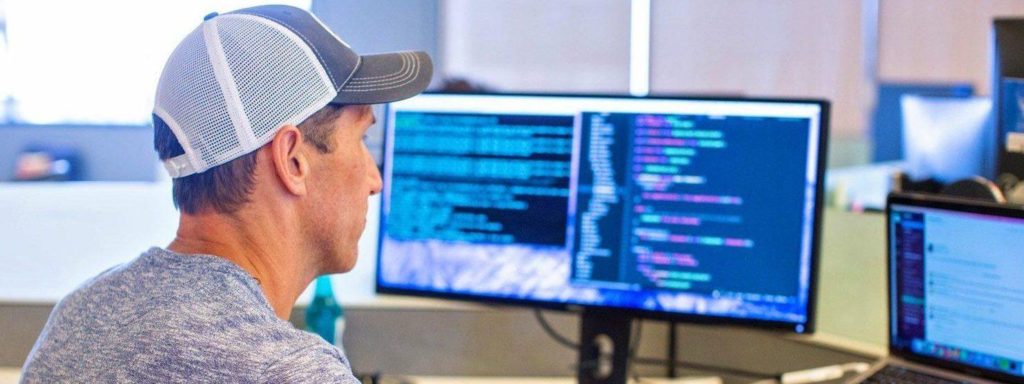
Graduates
As of December 2018, 56 TLM graduates have reentered society and the workforce with 0% recidivism. Among them is Chris Schuhmacher, who served 17 years for a serious crime he committed at a young age. Rebuilding his life on the outside for a year now, Schuhmacher is a software engineer at Fandom and is very happy to be building an online community for superfans worldwide (think Star Wars, Marvel Superheroes, Game of Thrones, anything people binge watch…).
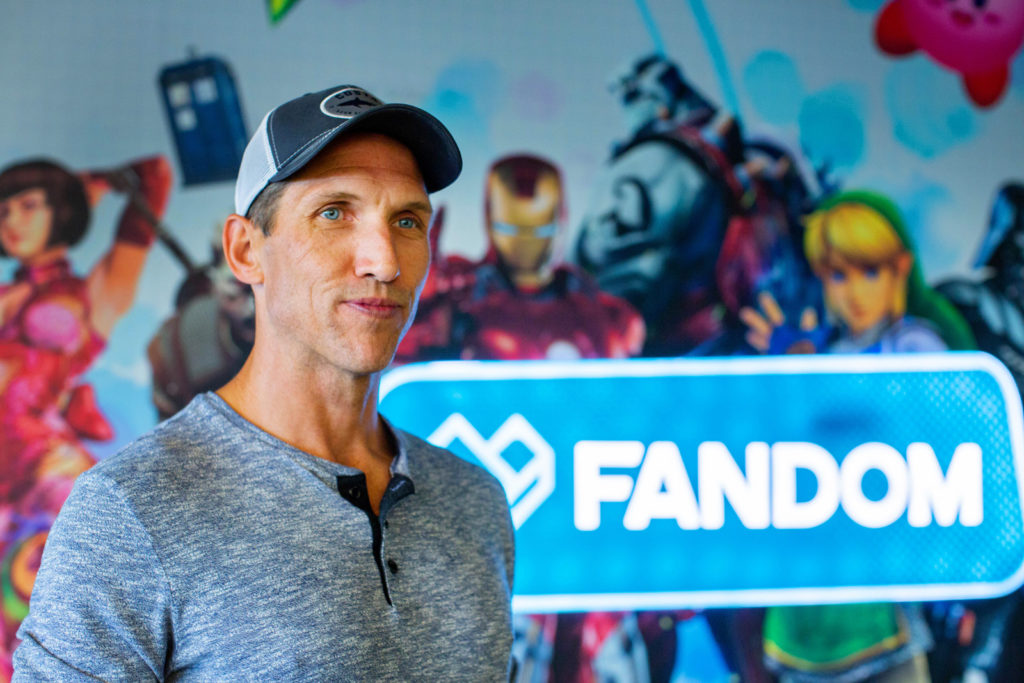
"I remember the first night of the entrepreneurship class," says Schuhmacher. "There were 12 of us sitting around in a circle. Chris and Beverly introduced themselves and talked about why they were doing this, why they were coming inside a prison to teach entrepreneurship. I remember Chris standing up and saying, 'Look, if you'll buy into this program, if you'll do the work, if you will believe in the process and you'll trust in us, then I'm gonna have an opportunity waiting for you when you get out.' To have this man stand up and make a promise like that? You know, you don't get many promises inside. But there was something in the way that he stood there, and his conviction, that made me believe."
Redlitz remembers the night well: "When I made those promises, like to Chris about getting a job, I really believed in my heart because I could see the talent. I could see these guys, when they got out, they're just going to kick ass. And that's what's happened."
"Inside the classroom, Beverly used to make us stand up and introduce ourselves as, 'Hi, I'm Chris Schuhmacher. I'm a software engineer.' Before it was ever true. But really, what it was doing was ingraining us to believe in the process and believe in ourselves."
Chris Schuhmacher
"Something that I am very proud of is, because of Chris Schuhmacher's work ethic and success, going from his internship to being hired as a full-time employee," says Redlitz, "there are now three new internship opportunities within Fandom for graduates coming out." Beverly adds, "Because they value Chris, the community is rising up and saying, 'If we could do this for Chris, we could do it for other people, too.'"
Kenyatta Leal has a similar story, except that he was serving a life sentence (not knowing if he would ever get out) when he met Duncan Logan, CEO and founder of RocketSpace. "Duncan told him, 'Give me a call if you get out,' and we were there when he made the call. It was incredible," remembers Beverly.
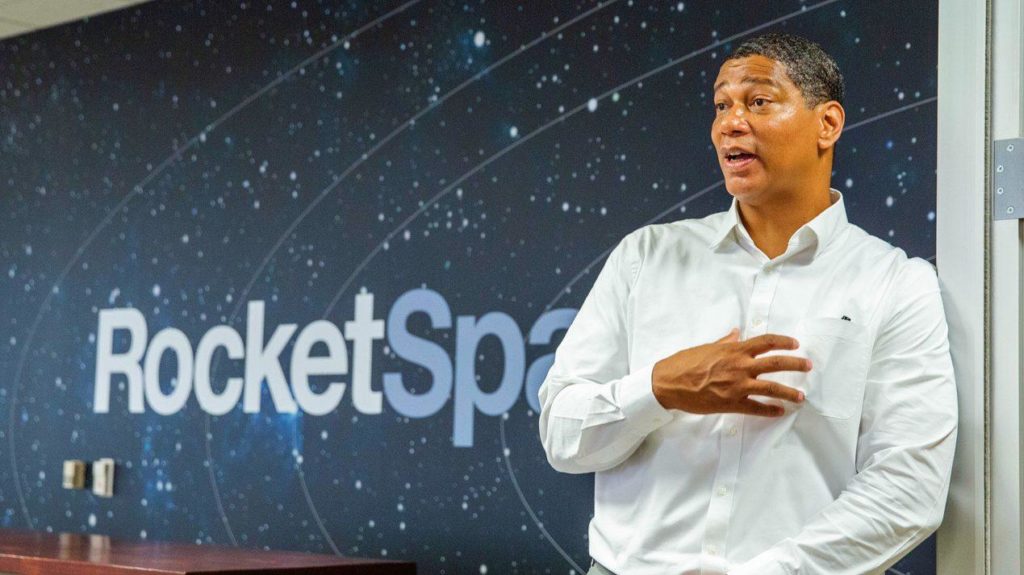
Of Kenyatta, Redlitz says, "He's an imposing character, but he also has this really genuine enthusiasm and when he first went in RocketSpace his enthusiasm just permeated the entire place." Kenyatta worked at RocketSpace for four and a half years before joining the TLM team full-time in early 2018.
"We're trying to change the narrative of what's possible for people even in incarcerated settings," Kenyatta explains, "And folks like myself—guys like Aly Tamboura, Chris Schumacher—these guys are all living and walking, breathing proof of what is possible if you provide a framework for change, a support system that starts on the inside and carries over to the outside, and then real life opportunities when they come home—I mean the sky's the limit of what people can do."
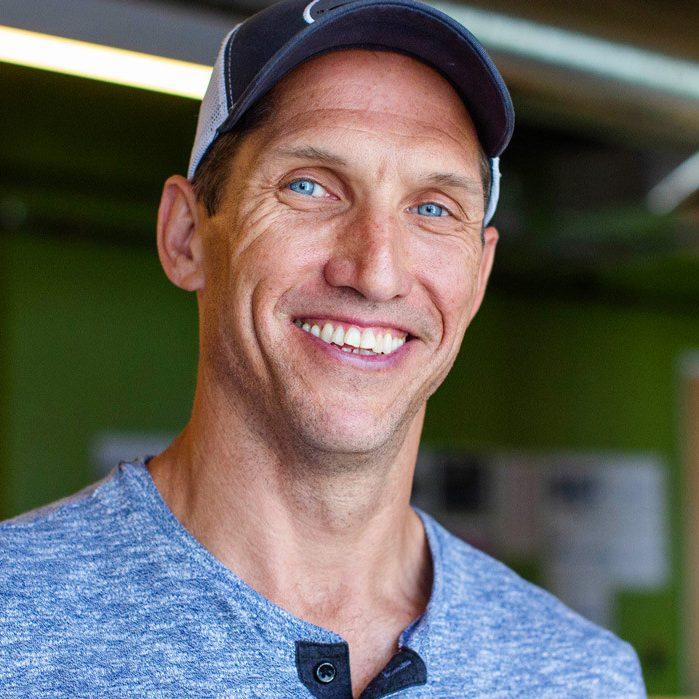
I mean, I am really getting the chance to build a life. And I thank The Last Mile for helping provide that opportunity. I'm grateful to be at Fandom and be on a team where I can continue to learn and contribute. What more is there?
Chris Schuhmacher
Software Engineer, Fandom
Creating pipelines
Silicon Valley's lack of diversity—recently dubbed its achilles heel by CNBC—has been a serious problem for a long time. As tech titans struggle to build a competent, diverse talent pipeline for the fastest growing sector in America, The Last Mile has been incubating a promising solution inside San Quentin State Prison and at facilities across the United States. "I knew that companies would be willing to hire if there was talent to hire, so part of our job is to help open that pipeline," Redlitz says.
Made up of two six-month tracks, the coding program takes participants a year to complete. "We look at people with three years to gate or less, because technology skills, are always evolving," explains Beverly. "And we also want to make sure that they have a definable job skill so when they go home they know what jobs they are qualified to do—they have a reference and a portfolio of work that they have accomplished. And frankly, coding and software engineering is one area where people are judged by the quality of their work and not by the stigma of their past."
Coding and software engineering is one area where people are judged by the quality of their work and not by the stigma of their past.
Keeping in mind there is no internet in prison and few of the students have ever used the internet personally, it's a little mind-blowing to imagine how they're learning code and writing scripts to solve problems they've never had. All dev work is done locally (on servers internal to the prison) and all curriculum is housed in a proprietary learning system that TLM developed in collaboration with the graduates themselves.
Not surprisingly, Schuhmacher was top of his class and one of the developer-graduates on the project. When I ask him what it was like to learn code offline, disconnected in so many ways, he says: "You know, we could only use the computers while we were in the classroom, but I would go home [to my cell] at night with a computer book, a number two pencil, and a notebook and practice writing algorithms and test problems. And I couldn't wait until the next day when I got into class and I could practice it out and see if it actually worked. And mind you, all of this learning was done without the use of the internet. So it was books, it was videos, it was tutors and mentors coming in from the outside teaching us. Which I think actually made our computer coding stronger, right? Because we didn't have so much access to instant answers, we really had to do the work."
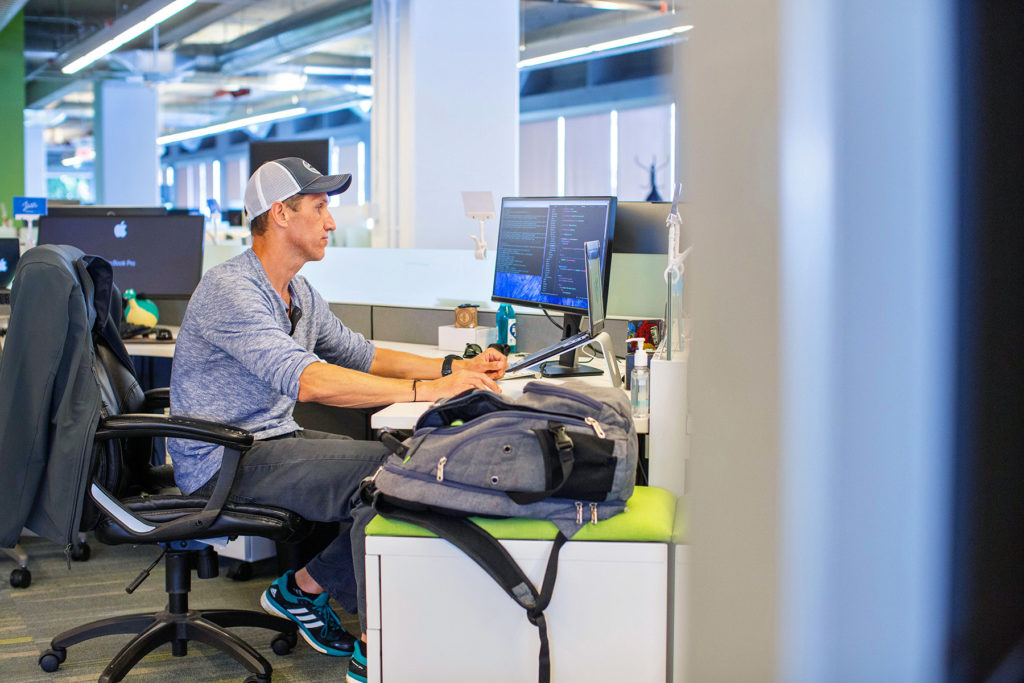
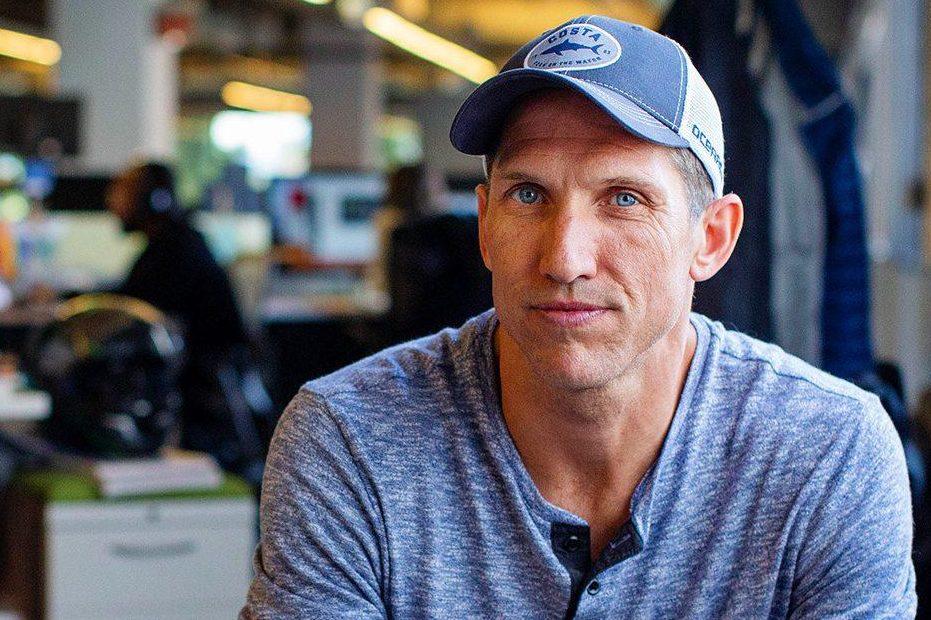
His first code challenge was to take a string of letters and get the computer to reverse them. "Those were the really easy ones," he laughs, "But my favorite one was developing a Sudoku solver—you know, the puzzles in the newspaper? It was a team project, so there was three of us on the team and we actually developed an algorithm that could solve a Sudoku in less than a second."
The skills are impressive and the numbers are persuasive: "It's a pretty inexpensive investment to increase education in prison, for sure," says Redlitz. "I mean, our program, when it's up and running, it's give or take about $5,000 a year per inmate. When you think about in California, we spend over $70,000 just to house someone. If you can get somebody a job and career prepared for $5,000, pretty cheap investment."
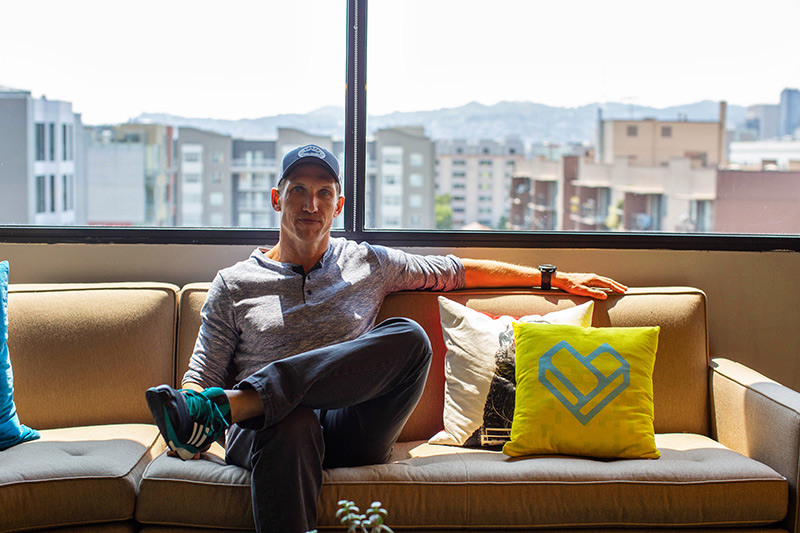
To further test and prove the 'career prepared' aspect of TLM, Redlitz and Beverly launched TLM Works—a joint venture program that makes it possible for graduates to do freelance web development work while they are still serving time.
Redlitz puts it in perspective: "When you consider that an average prison job is 50 to 90 cents an hour and [with TLM Works] they're getting paid close to $17 per hour, it's a big difference. But it's more than just the money—they're building a portfolio of work, they're learning how it is to deliver for a client, they're working as a team. The money to me is gravy, but they're walking out with thousands of dollars, instead of a couple of hundred dollars, which they get at gate. It makes a big difference for them to get started."
For Chris Schuhmacher, it allowed him to save money for when he was released, pay off his restitution, and send money home to his family. "One of the buckets that they made you put into was room and board," he laughs, "So for the last six months I was at San Quentin, I was actually paying rent!"

One thing that's very important to us is the success of our students when they reenter society. We want to make sure that they have every opportunity for success because they deserve it. They've done the work. Their life doesn't have to be hard forever.
Beverly Parenti
Co-Founder
Building trust
For the first four years, The Last Mile was an entrepreneurship program, highly-selective and offered only to people who did not have behavioral infractions—a requirement that remains today. "We have a zero tolerance policy—if anyone has an infraction while they are in our program, they are asked to leave," explains Beverly. "Good behavior is of high importance. And we look at the work that they've done. How have they transformed themselves? How much work have they done on their own self and their education?"
"Beverly and I went for almost two years, two nights a week, and taught this program ourselves, because we wanted to understand the domain," says Redlitz. "We wanted to understand the dynamics of the people inside, the prison administration, you know, if things resonated, if they didn't. So it was really important for us, and I think that's important for anybody that's doing something—you have to almost live it to be able to appreciate what is needed."

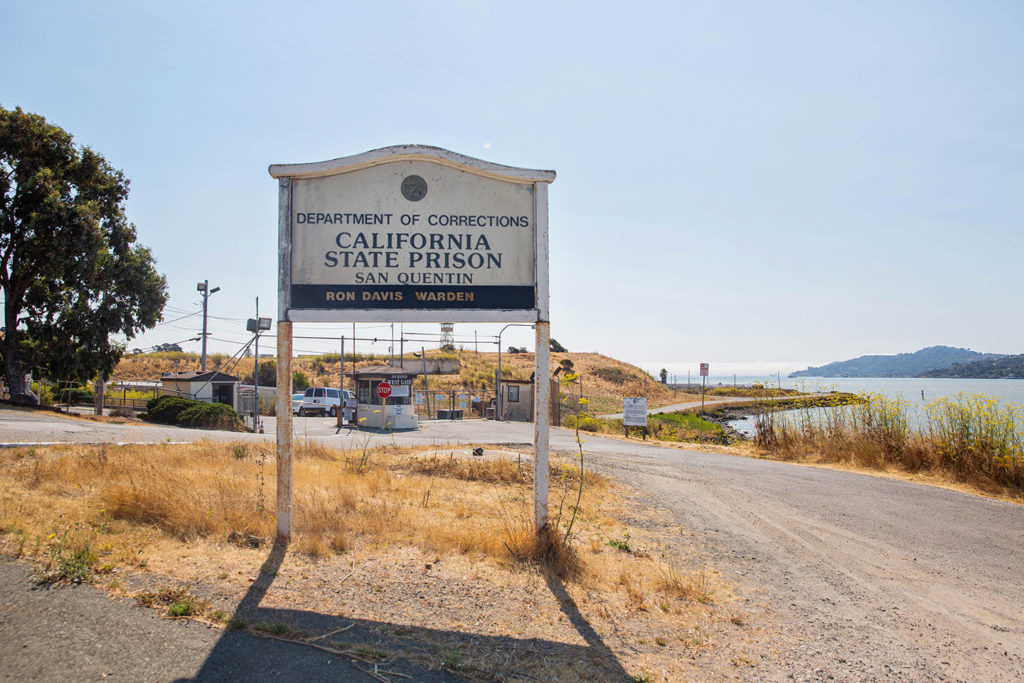
Besides baseline behavior, the application includes essay questions, a logic test, and an in-person interview. TLM ensures that every cohort is a good representation of the population within the facility and has the ability to work in a team environment, just as they would on the outside.
"For many of the people that we educate, the closest thing that they've had to a community has been a gang. And this is a very different dynamic than a gang—you know that somebody's going to have your back. And that doesn't happen in a gang—the gang is only as good as what you can contribute to it, and if you stop contributing, you're gone. And so, this is much deeper relationship than they've ever experienced," explains Redlitz.
Beverly: "When Chris came home with the crazy idea of starting an entrepreneurship program at San Quentin, I thought it was nuts. I said, 'Why should we use our time and resources to help those who have wronged society when there are so many other issues that are plaguing our society today?' But when I met the men inside San Quentin and saw that potential, the human potential that is being wasted, that's when I said, 'This is a very, very good use of our resources and our own time and effort.'"
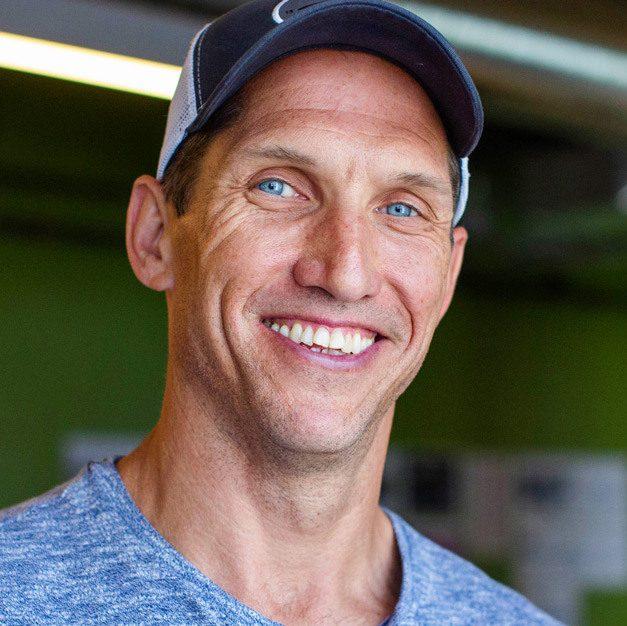
What kind of person do you want back in your community? Somebody that was on the yard all day doing pushups, or somebody that took their time and went back to school and got college degrees, learned how to build websites and develop web apps. I mean, these are the types of people that I want to be neighbors with.
Chris Schuhmacher
Software Engineer, Fandom
Scaling excellence
"We want to make sure that as we scale, we maintain the high quality of the program to make sure that those who return home, no matter where they are, have great success for the rest of their lives," says Beverly.
For website or app development work, make sure TLM Works is at the top of your list—build sites and futures at the same time.
Aiming to have 50 programs in five years, they're ahead of schedule. While the program started in San Quentin, TLM is now in eight facilities in and outside California. The team is working hard to add elective tracks and certifications, like QA for accessibility, as well as mobile QA, IT certification, and UX/UI design.
On the policy front, "We hope people will pay a little more attention. In California we've seen Prop 36 and Prop 57, which have both impacted tons of inmates. Prop 57 allowed those that were given life sentences the chance to potentially be re-sentenced; quite a few of our students have been re-sentenced because of that. Prop 36 was Three Strikes reform—the reason that Kenyatta is a free man today," says Redlitz.
When you're able to vote, it will have a huge impact on the way that we're treating people in the future.
As for Schuhmacher, he is happily settling into life outside. "I actually just moved into my own apartment—loving that. First time I've been on my own or by myself in well over 18 years, so it's a new experience. But I love it. And now I've had a chance to build LinkedIn profiles and learn how to navigate social media. Oh my gosh, online dating, it's a mess," Schuhmacher buries his head in his hands and laughs.
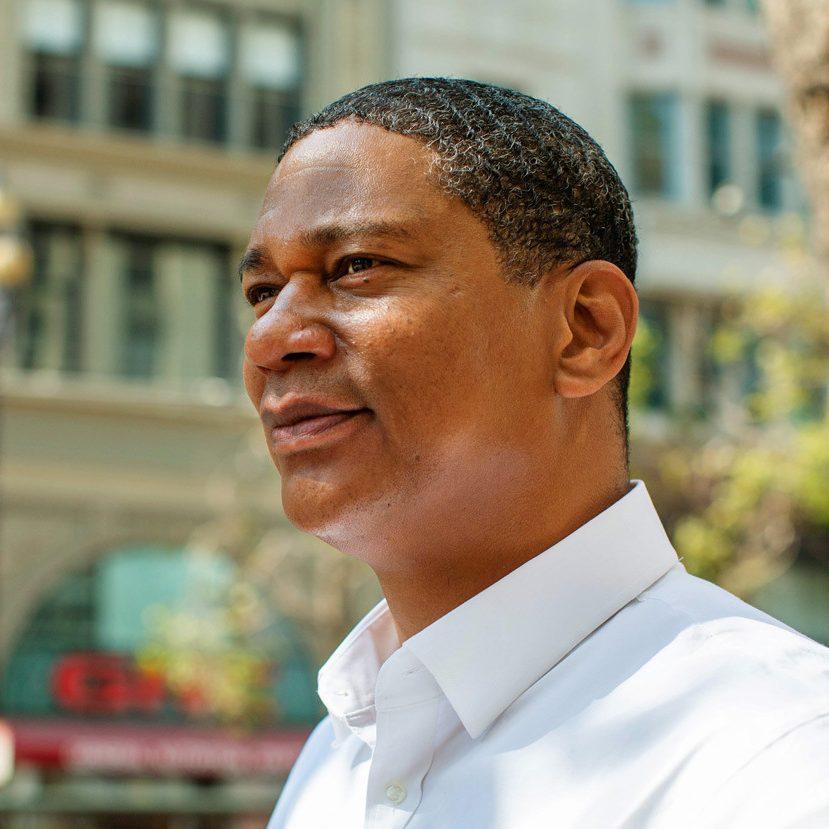
If we can help somebody learn about entrepreneurship or technology in a way that's meaningful for them, that helps them turn their life around, or maybe change the trajectory of their life, then it's all worthwhile. At the end of the day, what we're looking for are transformed lives and safer communities for everybody to live in.
Kenyatta Leal
Founding Member
***
Learn more about Stand Together’s criminal justice efforts and explore ways you can partner with us.
